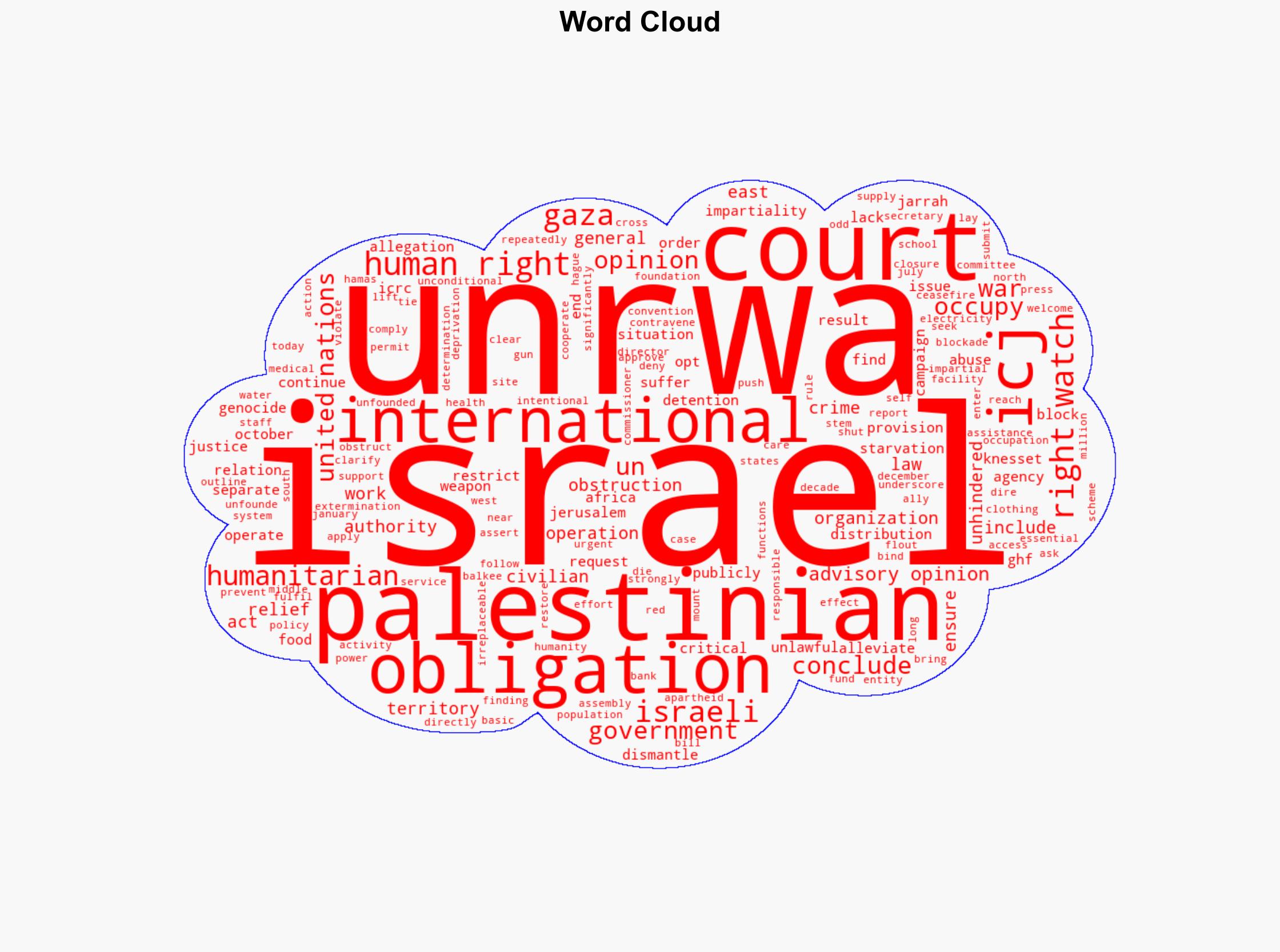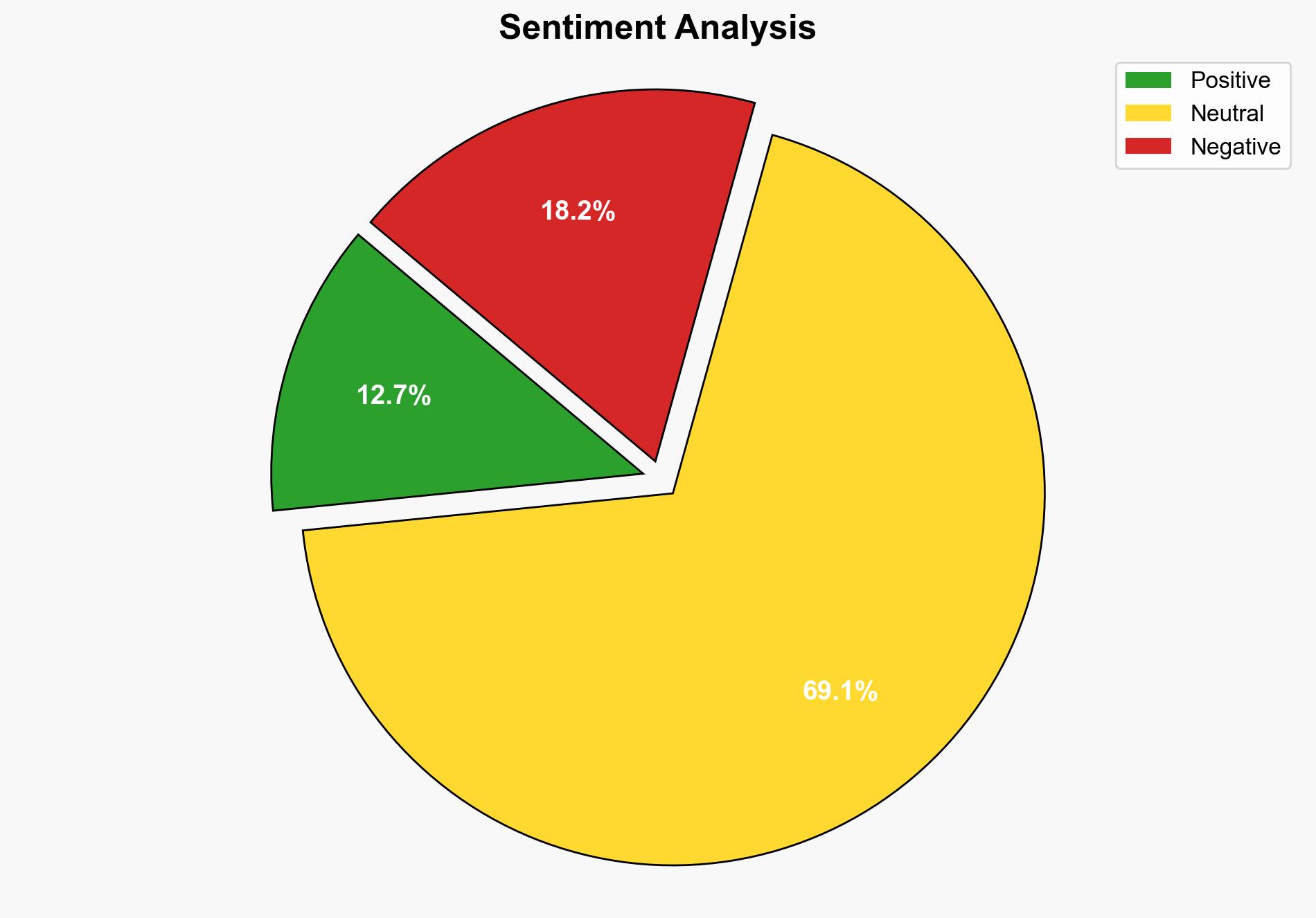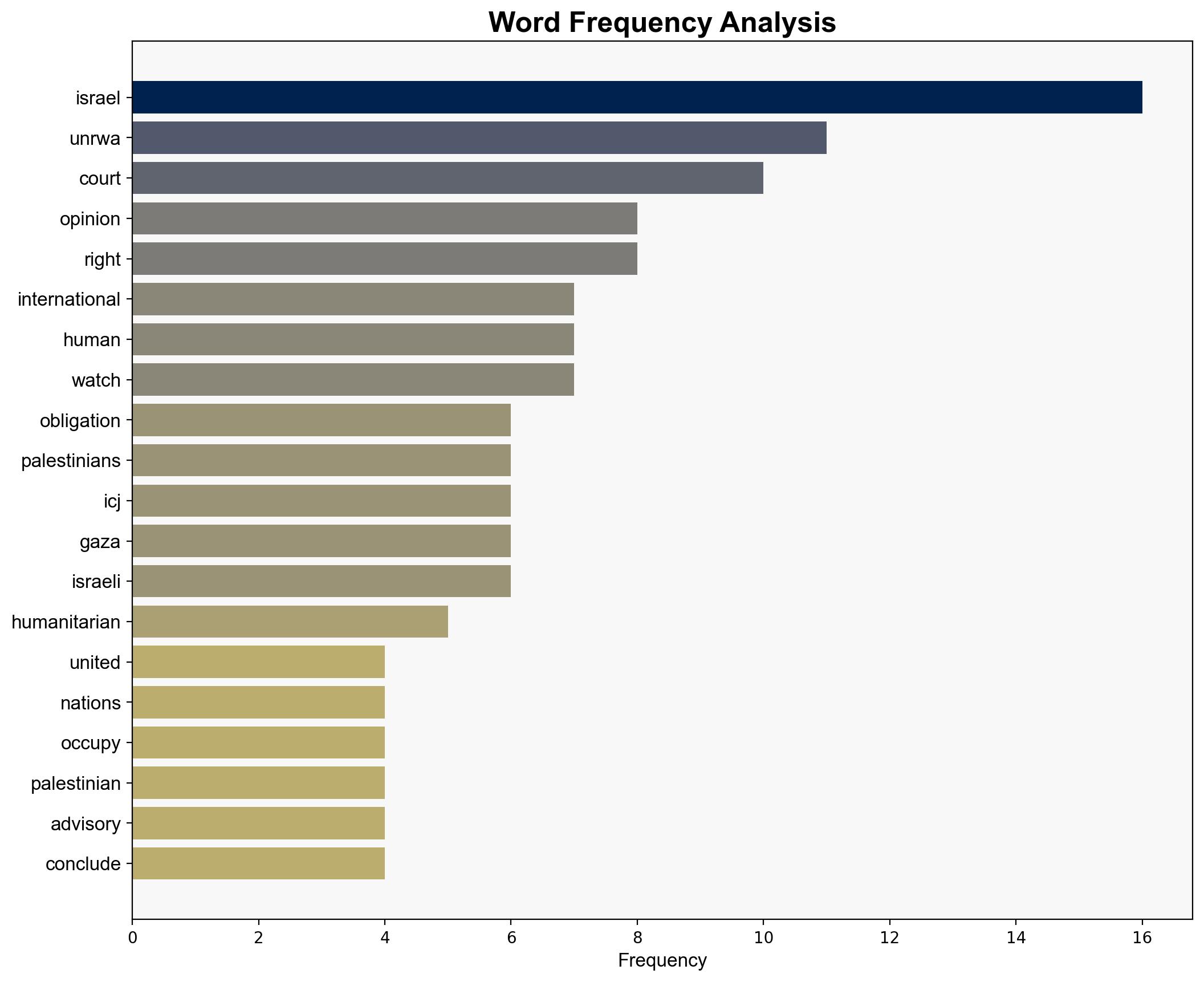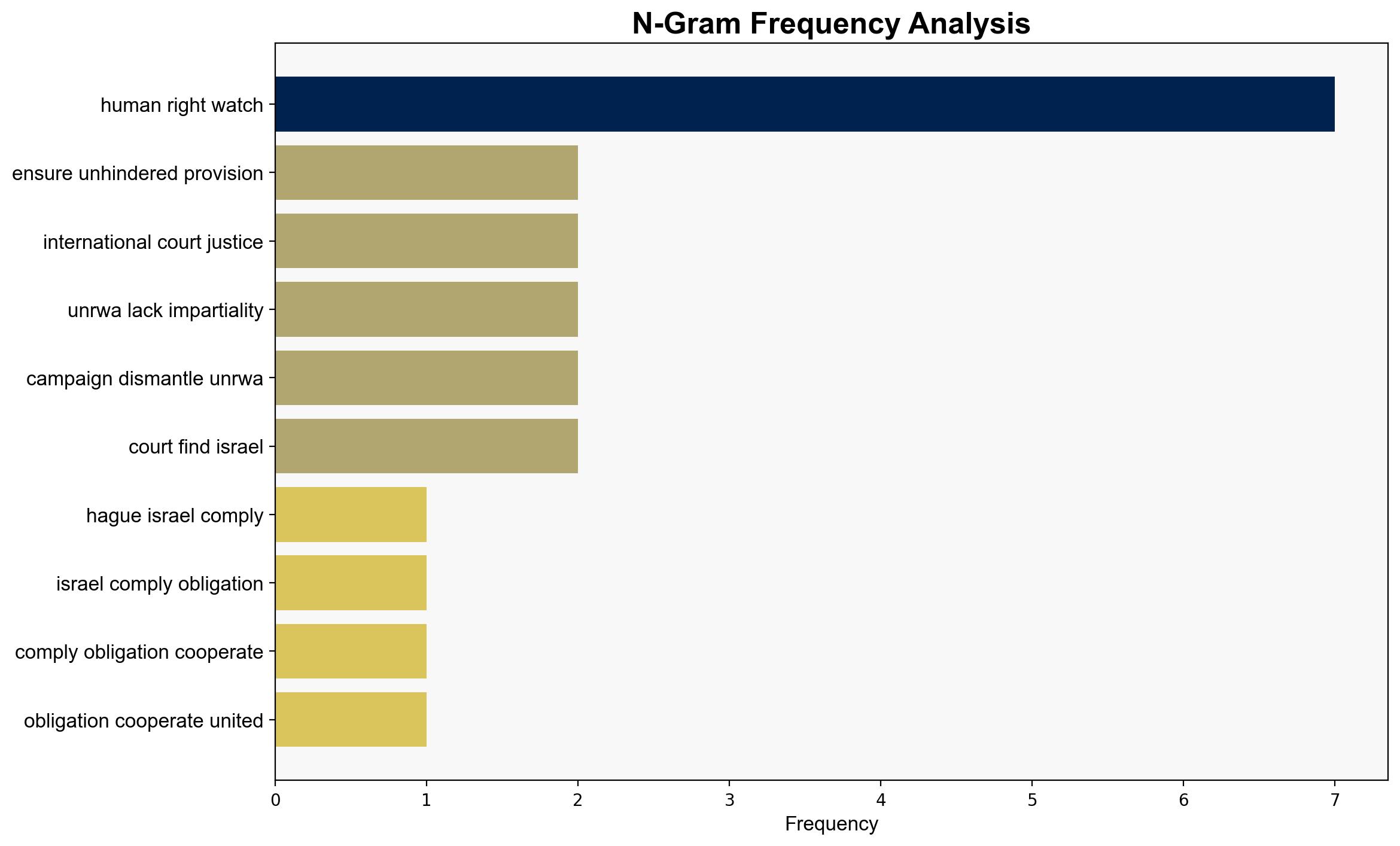World Court Israel Needs to Allow UN Aid into Gaza – Human Rights Watch
Published on: 2025-10-24
Intelligence Report: World Court Israel Needs to Allow UN Aid into Gaza – Human Rights Watch
1. BLUF (Bottom Line Up Front)
The most supported hypothesis suggests that Israel’s actions in obstructing UN aid to Gaza are primarily motivated by security concerns and political strategy, despite international legal obligations. Confidence in this judgment is moderate due to the complex geopolitical context and conflicting narratives. It is recommended that diplomatic channels be leveraged to encourage compliance with international humanitarian law, while monitoring for potential escalation in regional tensions.
2. Competing Hypotheses
1. **Hypothesis A**: Israel’s obstruction of UN aid to Gaza is driven by legitimate security concerns and a strategy to weaken Hamas by controlling aid distribution.
2. **Hypothesis B**: Israel’s actions are primarily a violation of international law, aimed at exerting political pressure on Gaza and undermining UN agencies like UNRWA.
Using the Analysis of Competing Hypotheses (ACH) 2.0, Hypothesis A is better supported by Israel’s historical emphasis on security and control over Gaza. Hypothesis B, while supported by international criticism and legal opinions, lacks direct evidence of intent beyond political strategy.
3. Key Assumptions and Red Flags
– **Assumptions**: Hypothesis A assumes Israel’s primary motivation is security, while Hypothesis B assumes a deliberate violation of international law for political gain.
– **Red Flags**: The absence of transparent data on the impact of aid obstruction and potential bias in reports from involved entities.
– **Blind Spots**: Limited insight into internal Israeli decision-making processes and the actual influence of international pressure on policy changes.
4. Implications and Strategic Risks
– **Geopolitical**: Continued obstruction could escalate tensions with international bodies and neighboring states, potentially leading to increased isolation.
– **Humanitarian**: Prolonged aid blockage may exacerbate the humanitarian crisis in Gaza, leading to increased instability and radicalization.
– **Economic**: Potential sanctions or economic repercussions from international entities if non-compliance persists.
– **Psychological**: Heightened resentment among Palestinian populations could fuel anti-Israel sentiment and violence.
5. Recommendations and Outlook
- Engage in multilateral diplomatic efforts to mediate between Israel and UN agencies, emphasizing the humanitarian imperative.
- Monitor regional alliances and shifts in international support that could influence Israel’s policy decisions.
- Scenario Projections:
- **Best Case**: Israel complies with international law, allowing aid, leading to improved humanitarian conditions and reduced tensions.
- **Worst Case**: Continued obstruction leads to international sanctions and increased regional conflict.
- **Most Likely**: Gradual compliance with international pressure, with intermittent aid access and ongoing political negotiations.
6. Key Individuals and Entities
– Human Rights Watch
– International Court of Justice (ICJ)
– UN Relief and Works Agency (UNRWA)
– Balkee Jarrah
7. Thematic Tags
national security threats, humanitarian crisis, international law, Middle East geopolitics





